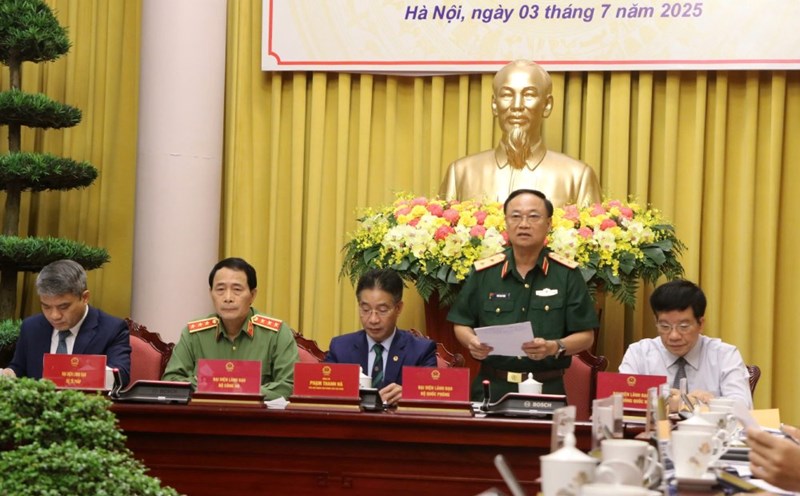This is one of the notable new points announced at the press conference of the Office of the President, held on July 3.
At the press conference, Deputy Inspector General of the Government Le Tien Dat said that the amended law has removed regulations on ministerial inspection, general inspection of departments under ministries, inspection agencies at agencies under the Government, inspection of departments, district inspection, organization and operation of agencies assigned to perform specialized inspection functions.
"The Law on Inspection stipulates the unification of an "inspection" activity, not distinguishing between administrative inspection and specialized inspection. The Government Inspectorate, the Provincial Inspectorate and other inspection agencies conduct inspections according to a unified order and procedure prescribed in the law and decrees guiding implementation," said the Deputy Inspector General of the Government.
This amendment, the Law on Inspection has specifically stipulated the responsibilities of the heads of State management agencies in implementing inspection conclusions. At the same time, it stipulates the mechanism for coordination and handling overlaps and overlaps between inspection, state audit, investigation, prosecution and examination activities.
The amended Law on Inspection also adds new rights to the Government Inspectorate, because after the rearrangement, the Government Inspectorate will receive additional functions and tasks from 12 Ministries Inspectorates.
Accordingly, the Government Inspectorate has the right to "inspect the implementation of policies, laws, tasks and powers of agencies, organizations, units and individuals under the management of ministries with ministries without a Ministry Inspectorate"; "inspect compliance with the law in areas under the state management of ministries without a Ministry Inspectorate".
The complicated case, related to the responsibility for State management of many ministries, ministerial-level agencies, and provincial People's Committees, is also under the inspection authority of the Government Inspectorate.
The law clearly stipulates that the Government Inspectorate has the right to re-inspect the case with the conclusions of the Inspectorate of the Ministry of National Defense, the Inspectorate of the Ministry of Public Security, the Inspectorate of the State Bank, the Inspectorate of the Major Parties, the Inspectorate established under international treaties, and the Provincial Inspectorate when detecting signs of law violations.
The Government Inspector General decided to re-inspect the case with the conclusions of the Inspectorate of the Ministry of National Defense, the Inspectorate of the Ministry of Public Security, the Inspectorate of the State Bank, the Inspectorate of Establishment, the Inspectorate established under international treaties, the Provincial Inspectorate when detecting signs of law violations.
According to the law, inspections are conducted when there is 1 of the 5 signs of law violations.
Including: serious violations of the authority to issue inspection decisions, procedures during the inspection process; Changes in the application of the law when conducting inspection conclusions; The content of the inspection conclusion is not consistent with the evidence collected during the inspection process; The inspectors intentionally distort the case file or intentionally concluded illegally; There are signs of serious law violations by the inspected subject but have not been fully detected through the inspection.
The inspection period is 2 years from the date of issuance of the inspection conclusion.
When based on the above provisions, the superior inspection agency conducts a re-inspection of the inspection conclusion of the subordinate inspection agency.
With the inspection conclusion of the Government Inspectorate, it will report to the Prime Minister for consideration and decision on the re-inspection.
The Law on Inspection (amended) takes effect from July 1, 2025.












